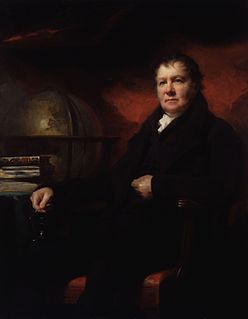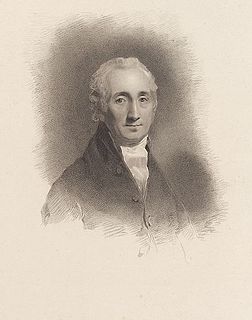A Quote by H. L. Mencken
There is, in fact, no reason to believe that any given natural phenomenon, however marvelous it may seem today, will remain forever inexplicable. Soon or late the laws governing the production of life itself will be discovered in the laboratory, and man may set up business as a creator on his own account. The thing, indeed, is not only conceivable; it is even highly probable.
Quote Topics
Related Quotes
Christianity is not a patent medicine. Christianity claims to give an account of facts - to tell you what the real universe is like. Its account of the universe may be true, or it may not, and once the question is really before you, then your natural inquisitiveness must make you want to know the answer. If Christianity is untrue, then no honest man will want to believe it, however helpful it might be: if it is true, every honest man will want to believe it, even if it gives him no help at all.
The individual man, in introspecting the fact of his own consciousness, also discovers the primordial natural fact of his freedom: his freedom to choose, his freedom to use or not use his reason about any given subject. In short, the natural fact of his "free will." He also discovers the natural fact of his mind's command over his body and its actions: that is, of his natural ownership over his self.
The Author of nature has not given laws to the universe, which, like the institutions of men, carry in themselves the elements of their own destruction; he has not permitted in his works any symptom of infancy or of old age, or any sign by which we may estimate either their future or their past duration. He may put an end, as he no doubt gave a beginning, to the present system at some determinate period of time; but we may rest assured, that this great catastrophe will not be brought about by the laws now existing, and that it is not indicated by any thing which we perceive.
The truly educated man is not a man who knows a bit of everything, not even the man who knows all the details of all subjects (if such a thing were possible): the “whole man” in fact, may have little detailed knowledge of facts and theories...but he will be truly in touch with the centre. He will not be in doubt about his basic convictions, about his view on the meaning and purpose of his life. He may not be able to explain these matters in words, but the conduct of his life will show a certain sureness of touch which stems from this inner clarity.
But life cannot maintain itself alone. The Creator of life has entrusted us with the responsibility of preserving, developing, and perfecting it. In order that we may accomplish this, He has provided us with a collection of marvelous faculties. And He has put us in the midst of a variety of natural resources. By the application of our faculties to these natural resources we convert them into products, and use them. The process is necessary in order that life may run its appointed course.
It is very important that you only do what you love to do. you may be poor, you may go hungry, you may lose your car, you may have to move into a shabby place to live, but you will totally live. And at the end of your days you will bless your life because you have done what you came here to do. Otherwise, you will live your life as a prostitute, you will do things only for a reason, to please other people, and you will never have lived. and you will not have a pleasant death.
It is not, perhaps, unreasonable to conclude, that a pure and perfect democracy is a thing not attainable by man, constituted as he is of contending elements of vice and virtue, and ever mainly influenced by the predominant principle of self-interest. It may, indeed, be confidently asserted, that there never was that government called a republic, which was not ultimately ruled by a single will, and, therefore, (however bold may seem the paradox,) virtually and substantially a monarchy.
...it may be that there is no God, that the existence of all that is beautiful and in any sense good is but the accidental and ineffective byproduct of blindly swirling atoms, that we are alone in a world that cares nothing for us or for the values that we create and sustain - that we and they are here for a moment only, and gone, and that eventually there will be left no trace of us in the universe. A man may well believe that this dredful thing is true. But only the fool will say in his heart that he is glad that it is true.
Happiness consists not of having, but of being; not of possessing, but of enjoying. It is a warm glow of the heart at peace with itself. A martyr at the stake may have happiness that a king on his throne might envy. Man is the creator of his own happiness. It is the aroma of life, lived in harmony with high ideals. For what a man has he may be dependent upon others; what he is rests with him alone.
It is vain to think that any weariness, however caused, any burden, however slight, may be got rid of otherwise than by bowing the neck to the yoke of the Father's will. There can be no other rest for heart and soul than He has created. From every burden, from every anxiety, from all dread of shame or loss, even loss of love itself, that yoke will set us free.
I do not pretend to be able to prove that there is no God. I equally cannot prove that Satan is a fiction. The Christian god may exist; so may the gods of Olympus, or of ancient Egypt, or of Babylon. But no one of these hypotheses is more probable than any other: they lie outside the region of even probable knowledge, and therefore there is no reason to consider any of them.
In whatever area in life one may meet the challenges of courage, whatever may be the sacrifices he faces if he follows his conscience - the loss of his friends, his fortune, his contentment, even the esteem of his fellow men - each man must decide for himself the course he will follow. The stories of past courage can define that ingredient - they can teach, they can offer hope, they can provide inspiration. But they cannot supply courage itself. For this each man must look into his own soul.
[Attributing the origin of life to spontaneous generation.] However improbable we regard this event, it will almost certainly happen at least once.... The time... is of the order of two billion years.... Given so much time, the "impossible" becomes possible, the possible probable, and the probable virtually certain. One only has to wait: time itself performs the miracles.
We may appreciate the efforts, and even the greatness of the men who have tried to find the universal, the general 'behind' appearances; yet at the same time their quest was doomed to fail, for all universals break down as soon as the Creator, He who made man in His image, is denied or left out of account.





































